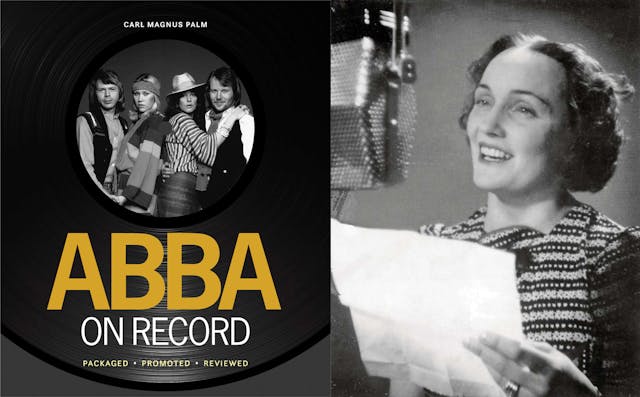ABBA blog
Thoughts and observations on the Swedish foursome

Swedish singer Ulla Billquist may very well be the quintessential Swedish schlager singer of the 20th Century. Although she died before any of the ABBA members were born, some of the songs she made famous are still heard today.
ABBA On Record contents - 03 What is a schlager?
published April 01, 2019
This is the third of six daily instalments, describing the contents of the upcoming book ABBA On Record - Packaged Promoted Reviewed. Day seven, Friday 5 April, is when pre-ordering starts .
In addition to the discography, which constitutes the main part of the book (detailed in Saturday's blog post), there will also be five additional sections. This is the second of these appendices:
03 WHAT IS A SCHLAGER?
If you've read extensively about ABBA, you will be aware of the term schlager, signifying a certain type of popular music that's not associated with what we normally think of as rock or pop. Schlager music was an important influence on ABBA - most obviously in 'I Do, I Do, I Do, I Do, I Do', so understanding what that terms stands for will also help us understand ABBA's music better. However, mainly for space reasons, in my own writings I've never had the chance to truly explain the term.
In this essay, which ties in with the Music That Inspired Them essay presented in yesterday's blog post, I will attempt to describe more specifically what schlager stands for in Sweden - it doesn't have the exact same meaning as in Germany, for instance. The focus will be on the term's meaning in the 20th Century and up to the end of the ABBA era in 1982. Moreover, since it's not a concept commonly used outside continental Europe, I will also try to contextualise it by comparing it to certain strands of popular music in the UK and the US.
Note: The above content description is subject to minor changes and adjustments.
Stay tuned for the next instalment in the "ABBA On Record contents" story, to be published tomorrow.
© 2003–2025 Carl Magnus Palm. All rights reserved. Produced by Disco Works